Special Report
Healthiest and Unhealthiest School Lunch Snacks

Published:
Last Updated:

Childhood obesity rates are not rising as fast as they used to, and in some areas they are even declining. Still, with 18.5% of all children and adolescents ages 2 to 19 years considered obese — about 13.7 million kids in all — childhood obesity remains a serious problem in the United States.
Lack of sufficient exercise and genetic factors are partly to blame. Another significant factor in children’s health is the kinds of food consumed on a regular basis. Snacks consumed at school in particular can represent a major portion of kids’ daily diets.
Carol Chong is the national nutrition advisor to the Alliance for a Healthier Generation,
an organization funded by the American Heart Association and Clinton Foundation that works to reduce obesity in children. In an email to 24/7 Wall St., Chong wrote, “[Snacks] serve to keep blood sugars within normal levels to avoid hunger, which may lead to irritability, lack of focus and behavior issues, especially in kids.”
Chong noted schools have made remarkable progress in ensuring kids have access to healthy foods at school. Also, the new federal school lunch nutrition standards that took effect in the 2012-13 school year, and the new rules for foods sold in school stores and vending machines that took effect in 2014-15 have helped make food available at school healthier.
Two examples of healthier snacks that are now popping up in school vending machines are Clif Organic Z Bars and Bare Apple Chips. Clif Organic Z Bars have less sugar than most granola bars at around 10 grams. Bare Apple Chips are also becoming more prevalent in schools, and even the flavored varieties are healthier than most snacks. The cinnamon kind, which is on our list of healthiest snacks, only has two ingredients — apples and cinnamon — with no added sugar.
However, the variety of snacks marketed to parents and provided in schools is enormous, and plenty of unhealthy snacks continue to be common both at school and at home, and of course at stores.
Soda, fruit juices, candy, chips, pretzels, and cookies continue to line the shelves of traditional vending machines today. The list of least healthy snacks features an array of foods that are considered unhealthy, such as Flamin’ Hot Cheetos, Skittles, Chips Ahoy Chocolate Chip Cookies, Tropicana Twisters, and more.
24/7 Wall St. compiled two lists of healthy and unhealthy packaged school snacks to highlight the difference between the two. To be considered a healthy snack, an item needed to have 200 or fewer calories and less than 230 mg of sodium — in line with federal guidance. We avoided especially sugary and fatty snacks. To identify a selection of some of the nation’s least healthy snacks, we considered snack items with nutritional contents that do not meet these guidelines.
Click here to see the healthiest school lunch snacks.
Click here to see the least healthy school lunch snacks.
Click here to see our detailed findings and methodology.

1. Bare Cinnamon Apple Chips
> Calories per serving: 110
> Sodium per serving: 0mg
> Sugar per serving: 21g
[in-text-ad]

2. Barney Butter Almond Butter
> Calories per serving: 90
> Sodium per serving: 50mg
> Sugar per serving: 1.5g
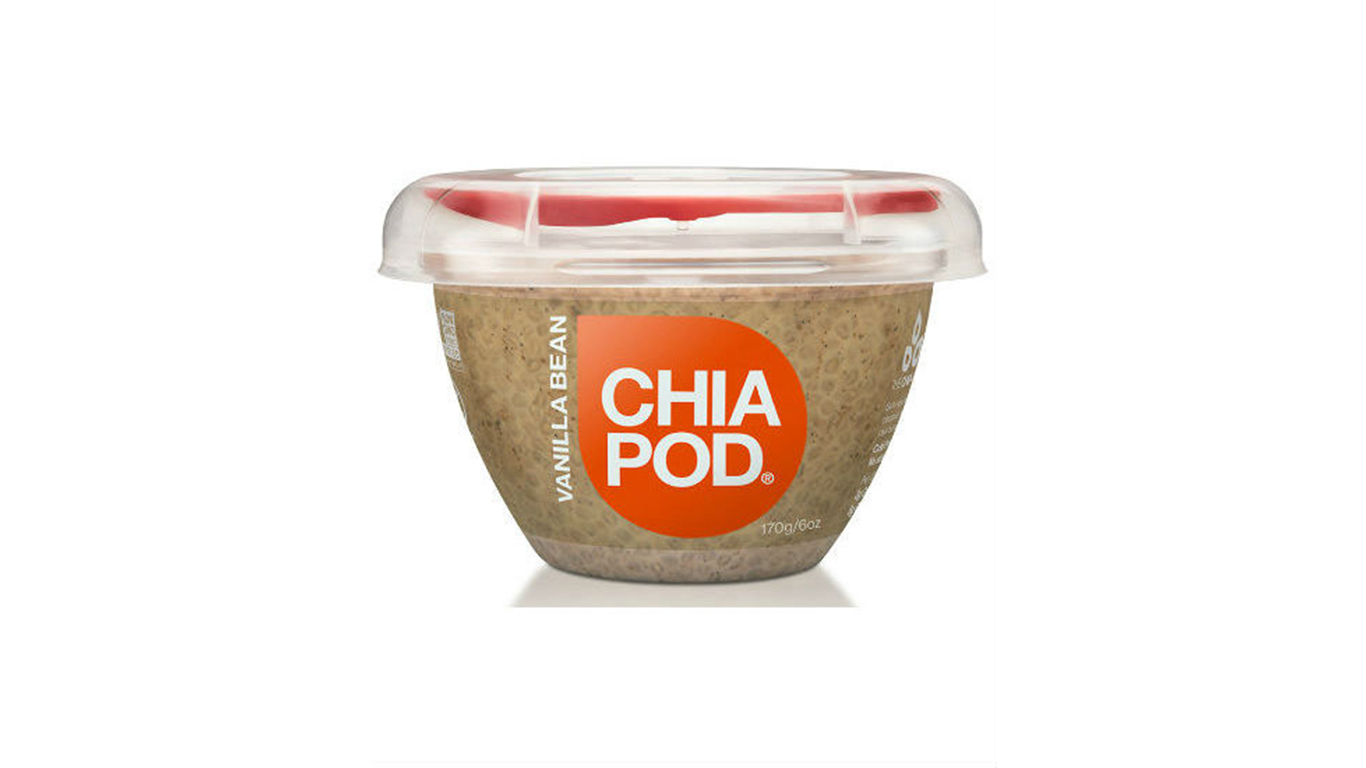
3. Chia Pod – Vanilla Bean
> Calories per serving: 160
> Sodium per serving: 20mg
> Sugar per serving: 7g

4. Chobani Kids Yogurt Tubes – Mixed Berry & Strawberry
> Calories per serving: 50
> Sodium per serving: 20mg
> Sugar per serving: 6g
[in-text-ad-2]

5. Clif Kid Z Bars – Chocolate Chip
> Calories per serving: 140
> Sodium per serving: 105mg
> Sugar per serving: 10g

6. Danimals Smoothies – Rockin’ Raspberry
> Calories per serving: 60
> Sodium per serving: 35mg
> Sugar per serving: 9g
[in-text-ad]

7. Enjoy Life Seed & Fruit Packs
> Calories per serving: 130
> Sodium per serving: 45mg
> Sugar per serving: 9g

8. Harvest Snaps Snapea Crisps
> Calories per serving: 130
> Sodium per serving: 75mg
> Sugar per serving: <1g

9. KIND Kids Bars – Chewy Honey Oat
> Calories per serving: 90
> Sodium per serving: 55mg
> Sugar per serving: 5g
[in-text-ad-2]
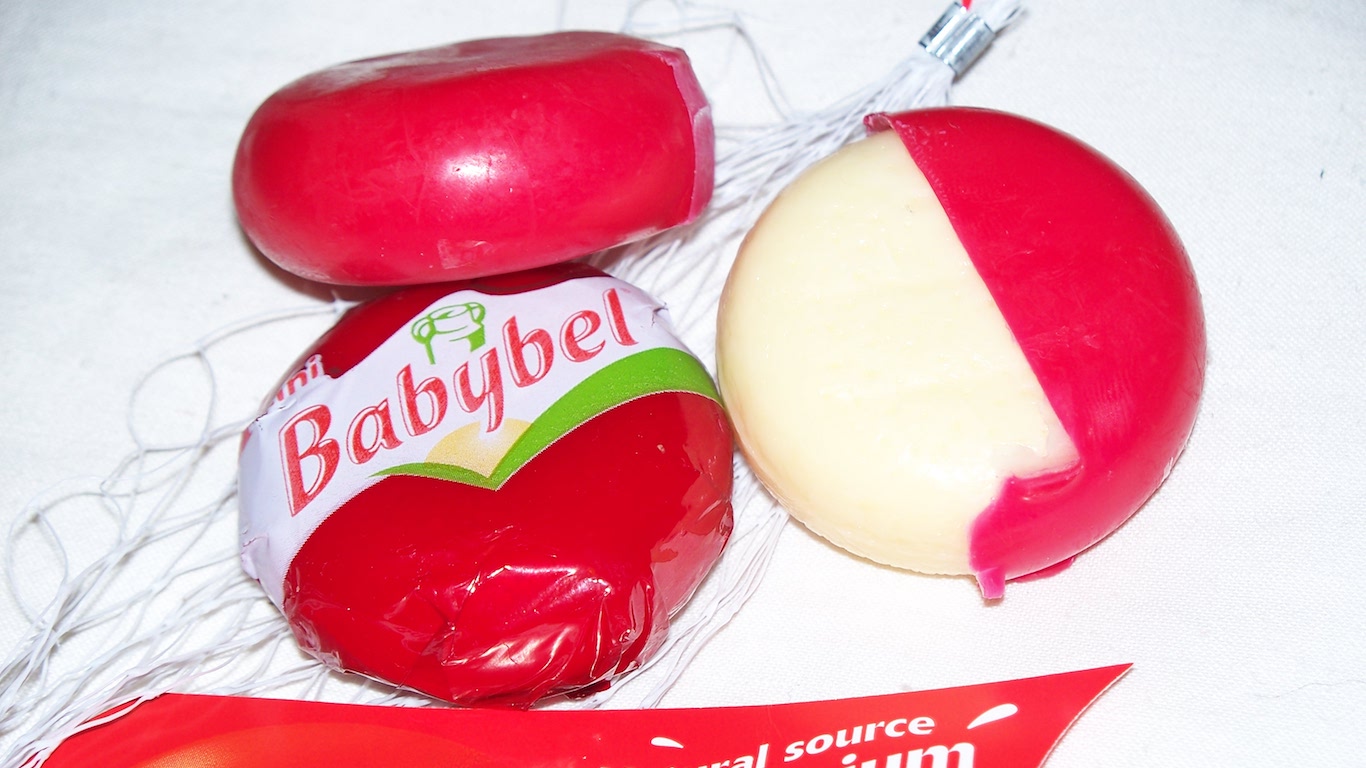
10. Laughing Cow’s Light Original Mini Babybel
> Calories per serving: 50
> Sodium per serving: 160mg
> Sugar per serving: 0g

11. Love Grown Cereal Cups – Polar Puffs
> Calories per serving: 100
> Sodium per serving: 60mg
> Sugar per serving: 6g
[in-text-ad]
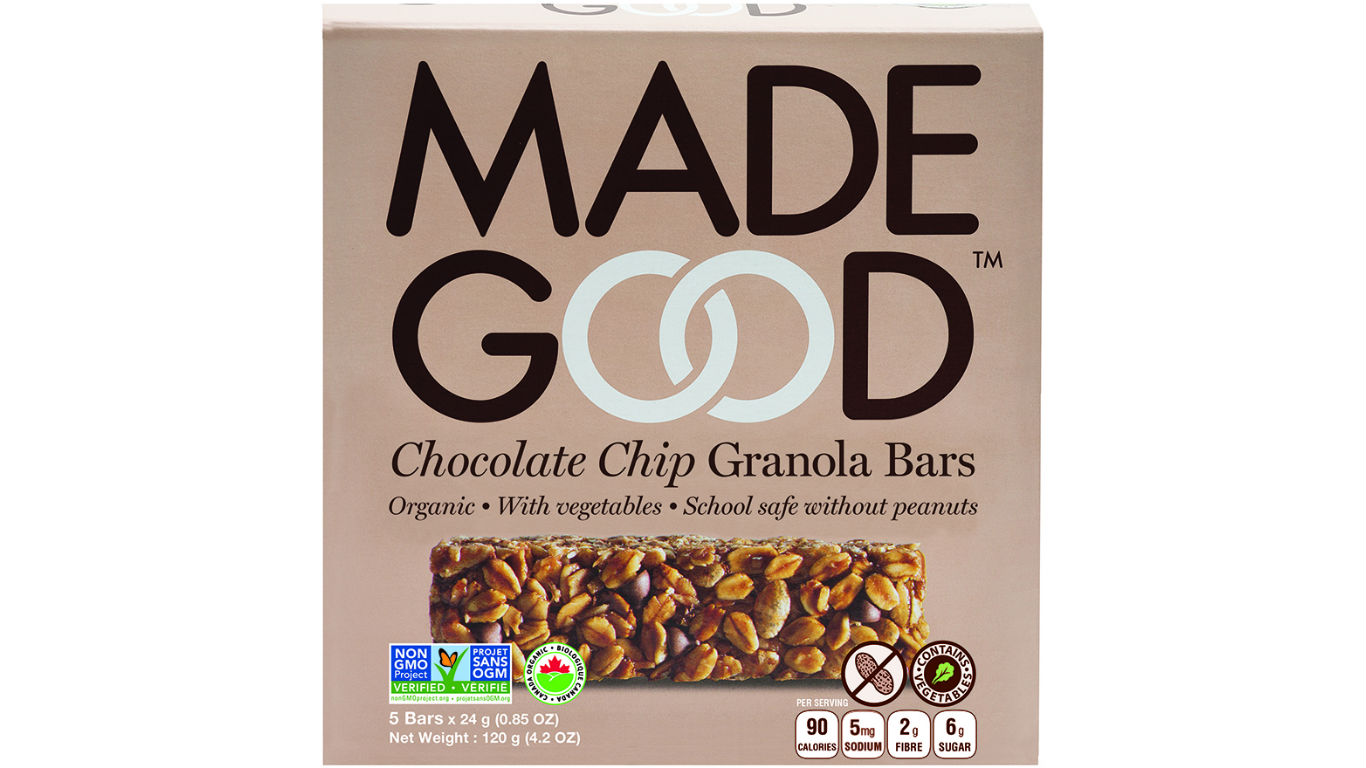
12. Made Good Chocolate Chip Granola Bars
> Calories per serving: 100
> Sodium per serving: 10mg
> Sugar per serving: 6g

13. Mary’s Gone Crackers
> Calories per serving: 140
> Sodium per serving: 190mg
> Sugar per serving: 0g
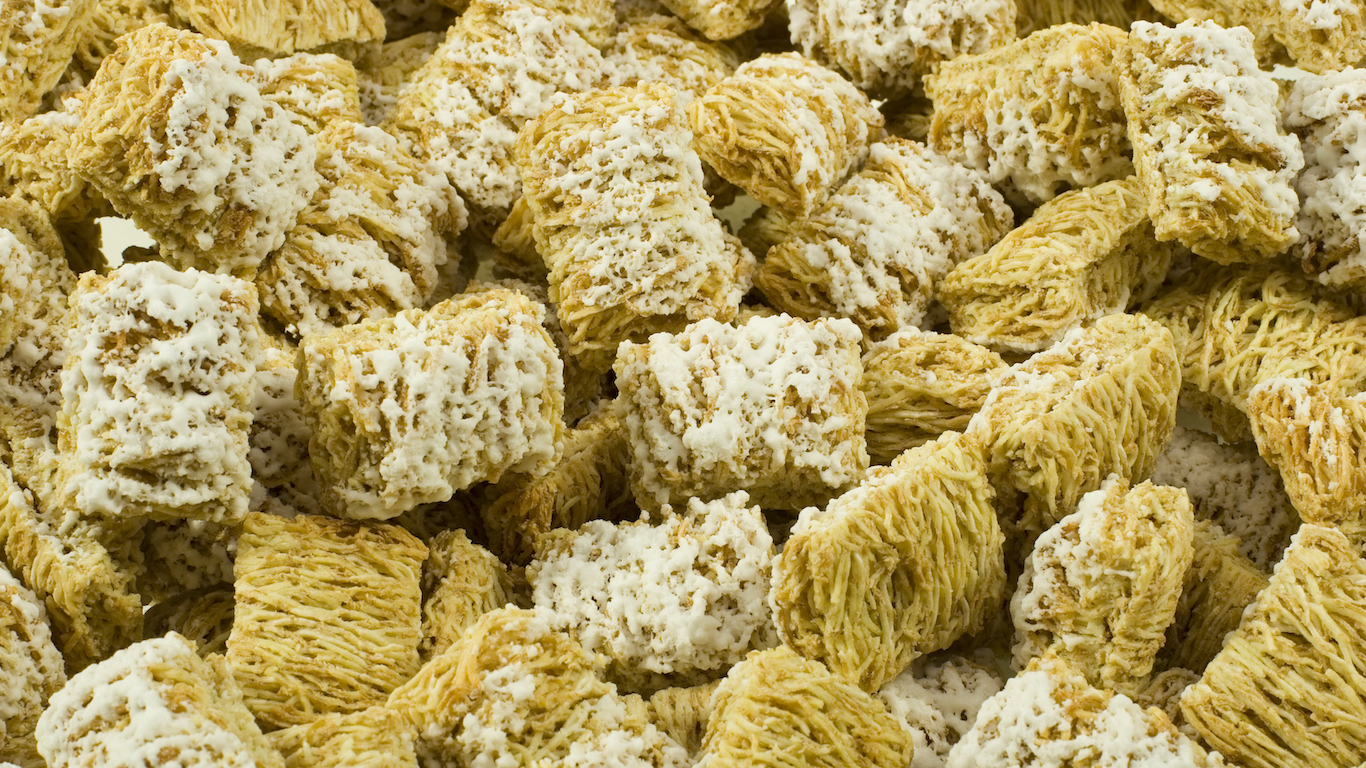
14. Mini Wheats
> Calories per serving: 190
> Sodium per serving: 0mg
> Sugar per serving: 11g
[in-text-ad-2]
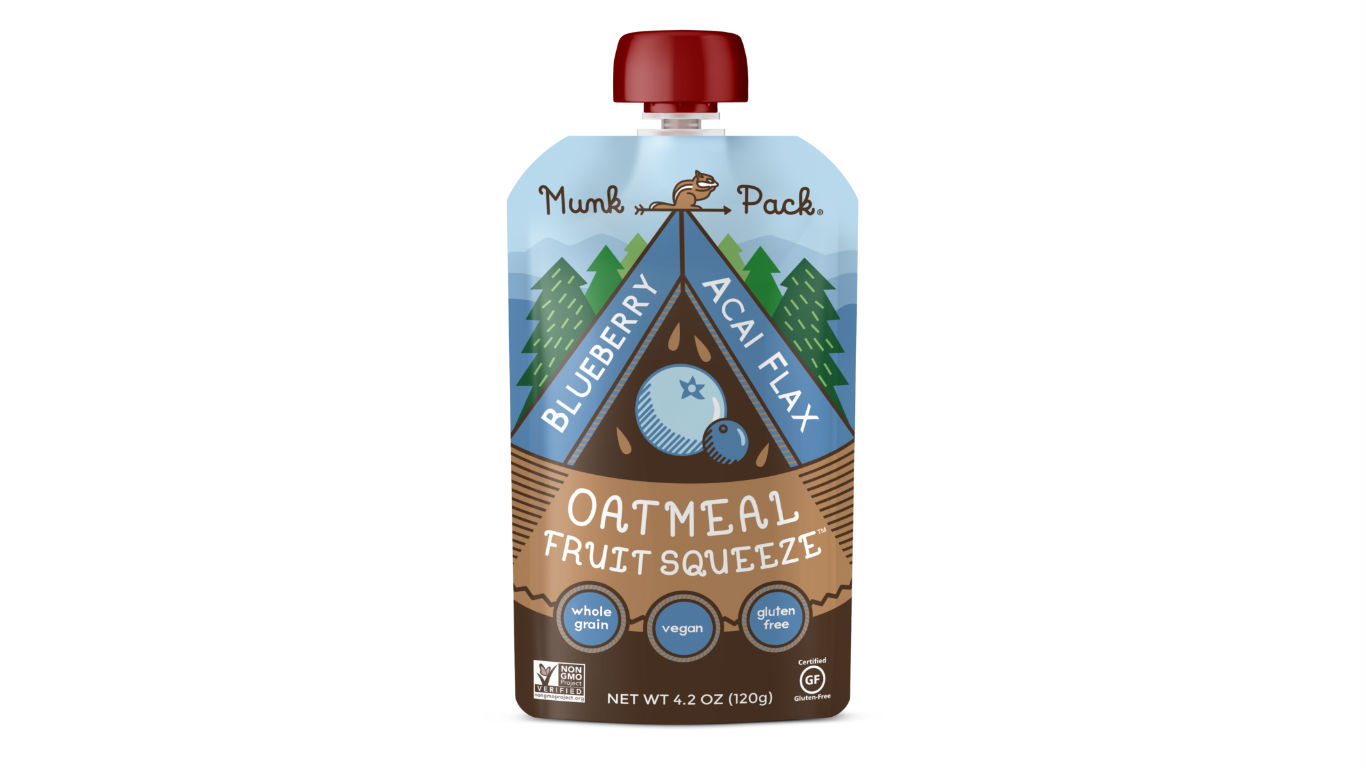
15. Munk Pack Oatmeal Fruit Squeeze – Blueberry Acai Flax
> Calories per serving: 110
> Sodium per serving: 5mg
> Sugar per serving: 12g

16. Nature Valley Chewy Trail Mix Bars – Fruit & Nut
> Calories per serving: 140
> Sodium per serving: 65mg
> Sugar per serving: 7g
[in-text-ad]
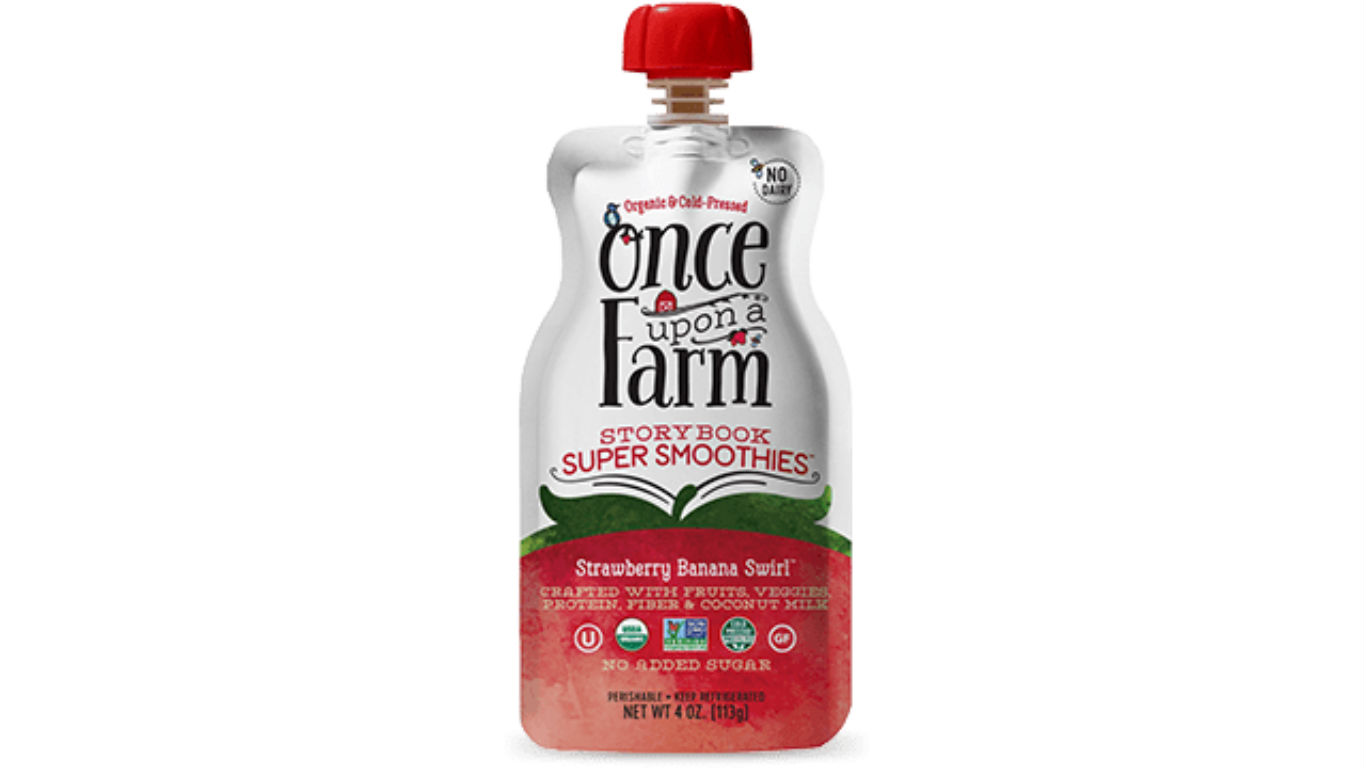
17. Once Upon A Farm Super Smoothies – Strawberry Banana Swirl
> Calories per serving: 100
> Sodium per serving: 0mg
> Sugar per serving: 10g
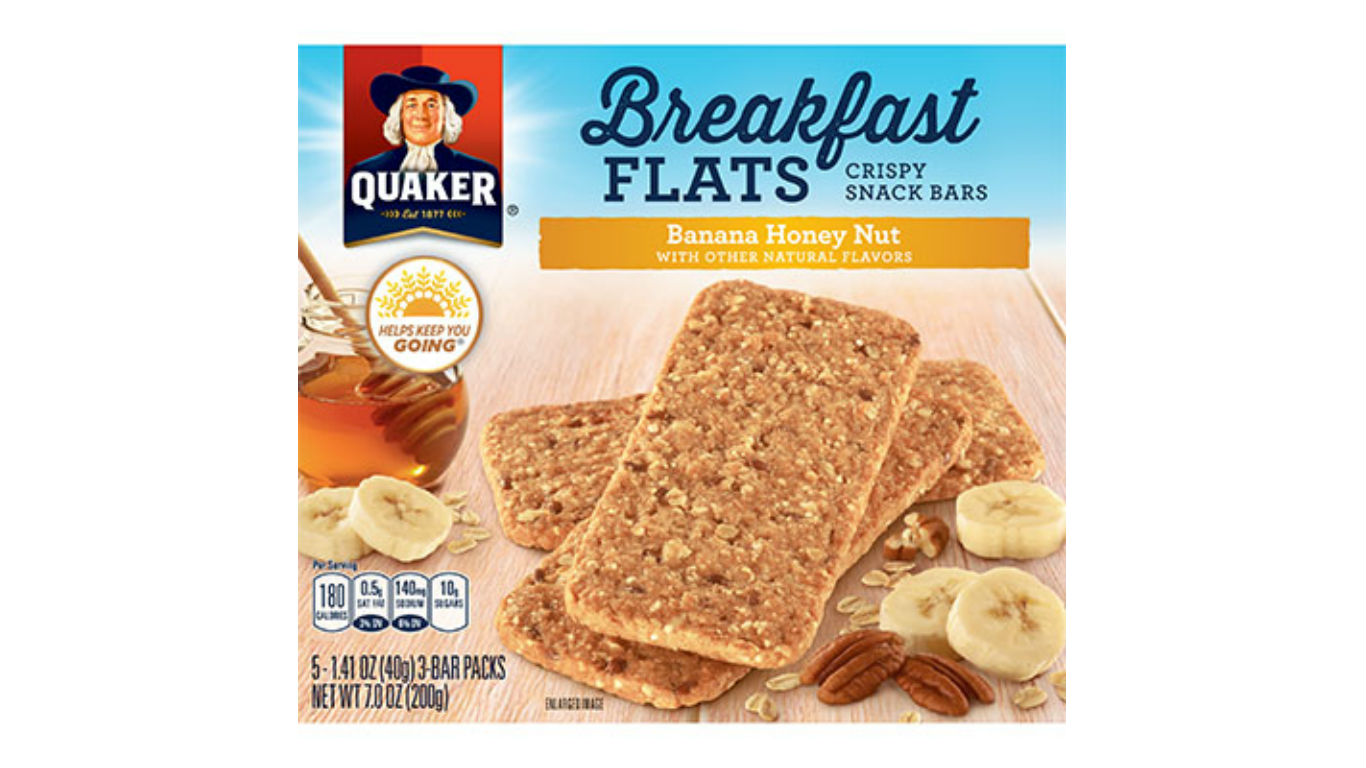
18. Quaker Breakfast Flats – Banana Honey Nut
> Calories per serving: 180
> Sodium per serving: 140mg
> Sugar per serving: 10g
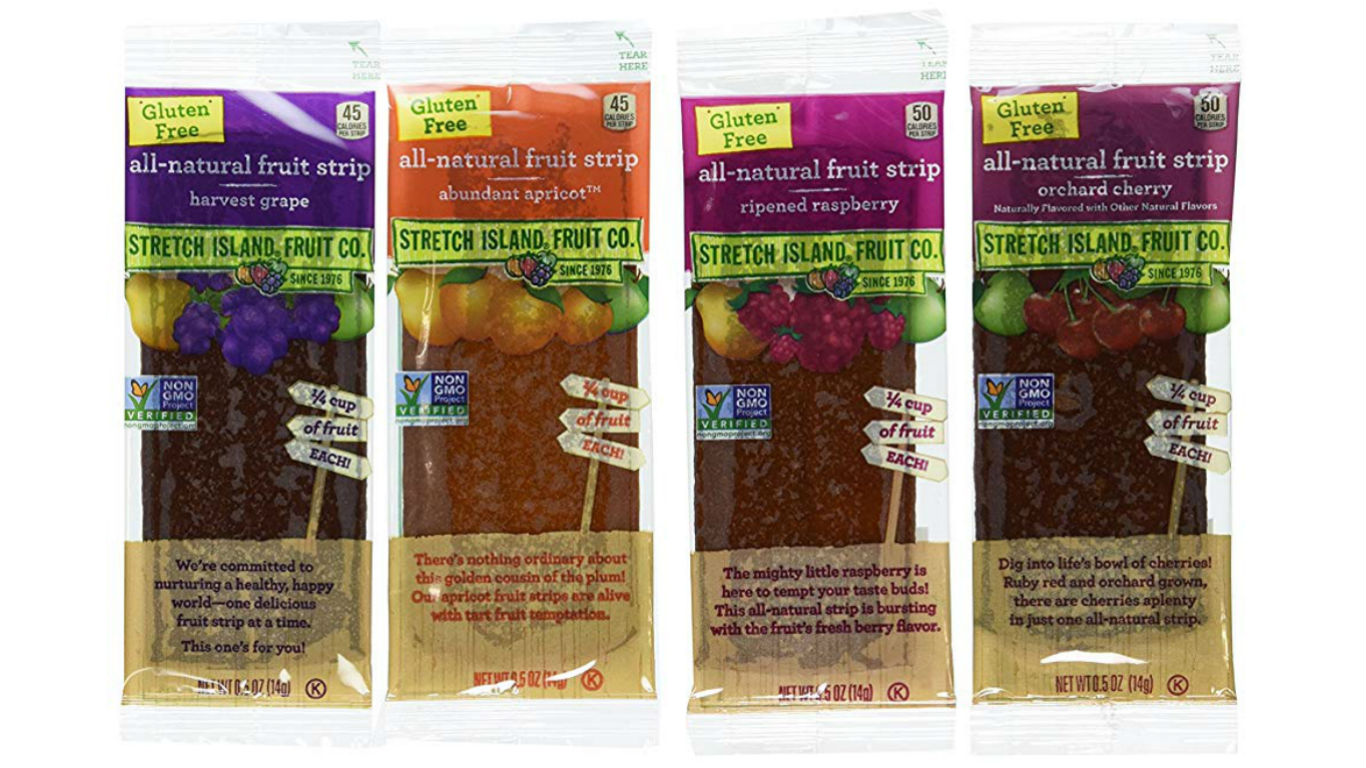
19. Stretch Island Fruit Leathers
> Calories per serving: 45
> Sodium per serving: 0mg
> Sugar per serving: 9g
[in-text-ad-2]
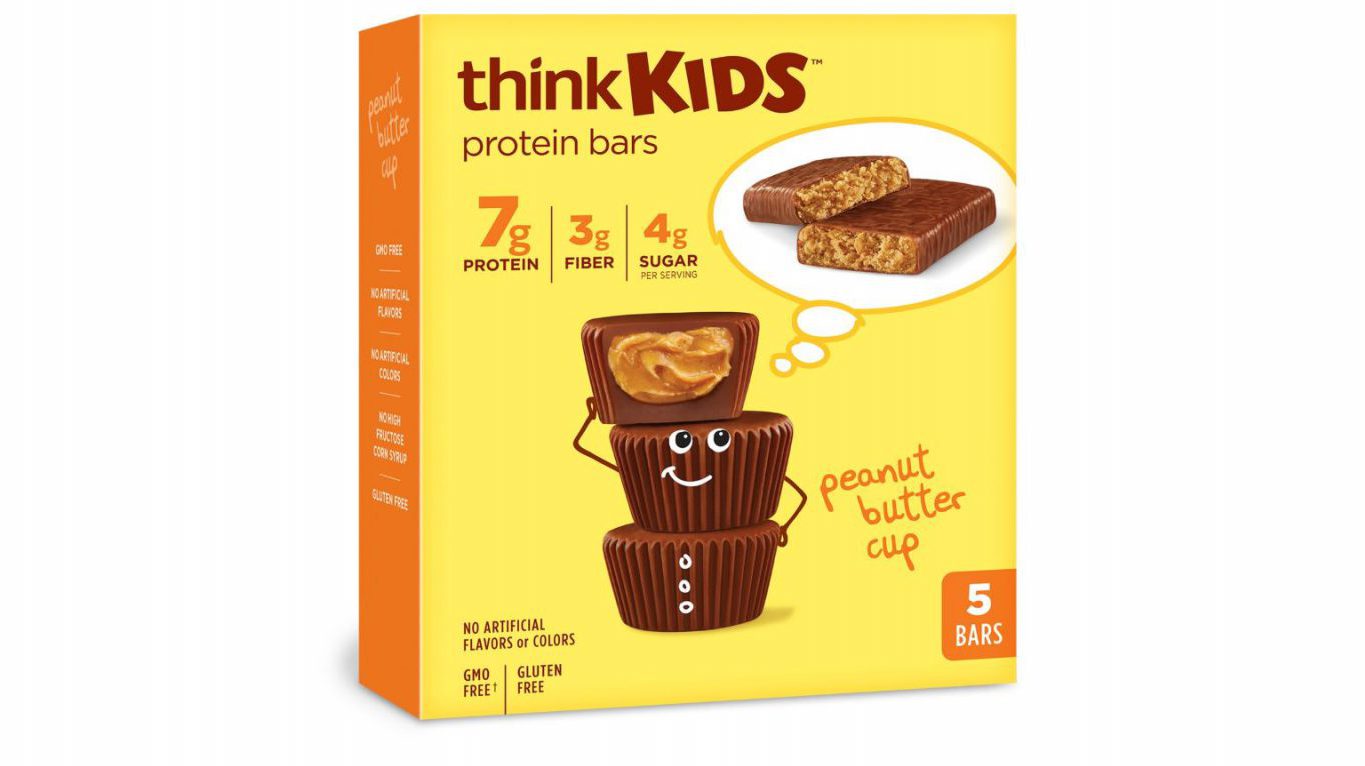
20. thinkKIDS Protein Bar – Peanut Butter Cup
> Calories per serving: 100
> Sodium per serving: 150mg
> Sugar per serving: 4g

1. Chex Mix
> Calories per serving: 240
> Sodium per serving: 420mg
> Sugar per serving: 4g

2. Chips Ahoy Chocolate Chip Cookies
> Calories per serving: 155
> Sodium per serving: 105mg
> Sugar per serving: 9g

3. Dole Fruit Cocktail Cup
> Calories per serving: 80
> Sodium per serving: 5mg
> Sugar per serving: 17g

4. Flamin’ Hot Cheetos
> Calories per serving: 160
> Sodium per serving: 250mg
> Sugar per serving: 0g
[in-text-ad-2]

5. Fritos – Chili Cheese
> Calories per serving: 160
> Sodium per serving: 270mg
> Sugar per serving: 1g

6. Fruit Rollups
> Calories per serving: 50
> Sodium per serving: 20mg
> Sugar per serving: 10g
[in-text-ad]
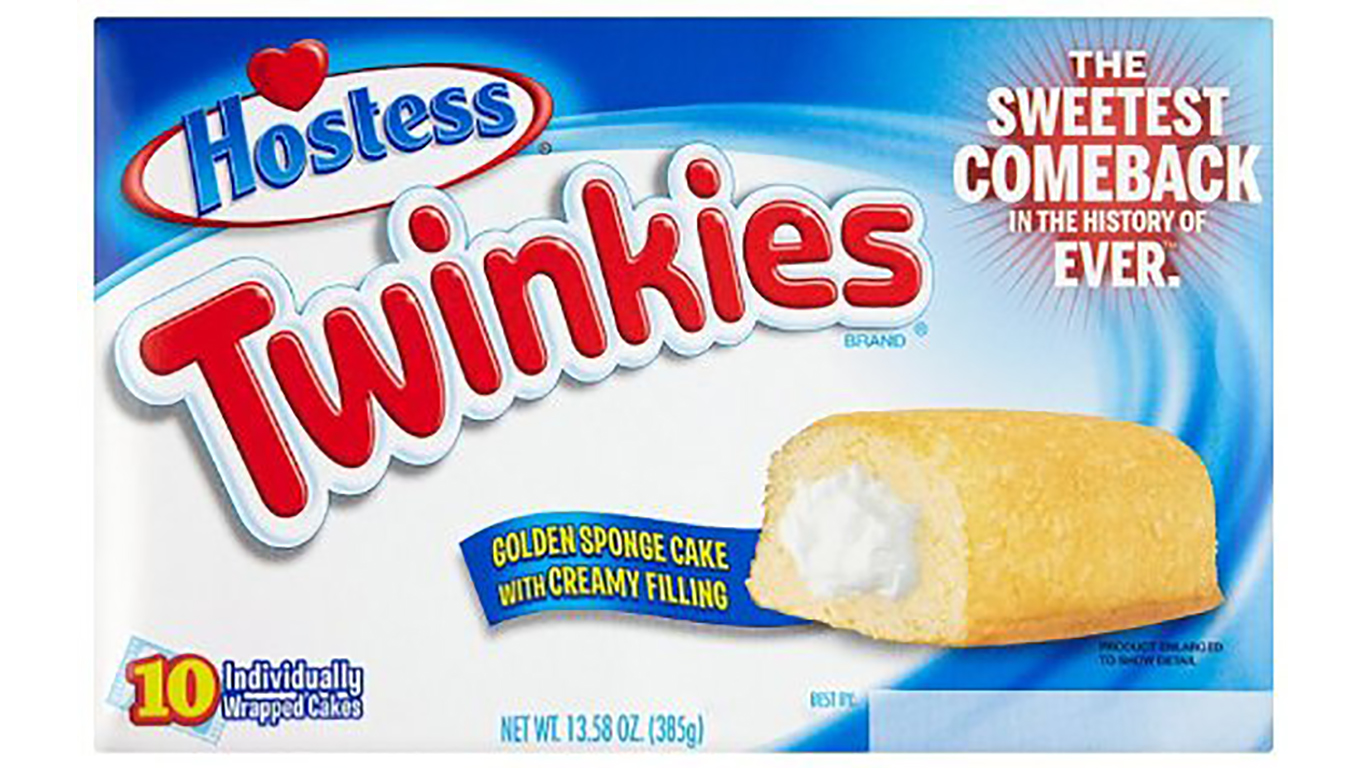
7. Hostess Twinkies
> Calories per serving: 135
> Sodium per serving: 180mg
> Sugar per serving: 16.5g
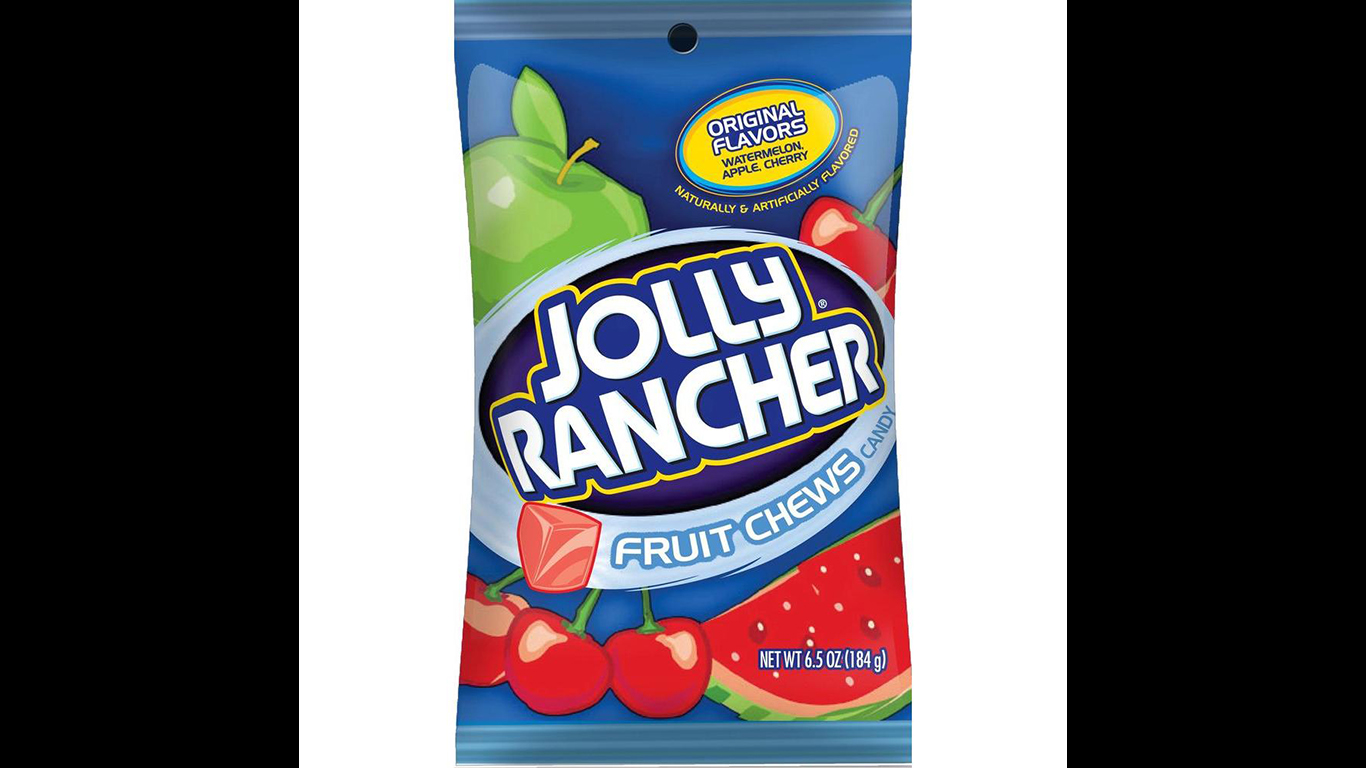
8. Jolly Rancher Fruit Chews
> Calories per serving: 160
> Sodium per serving: 20mg
> Sugar per serving: 27g
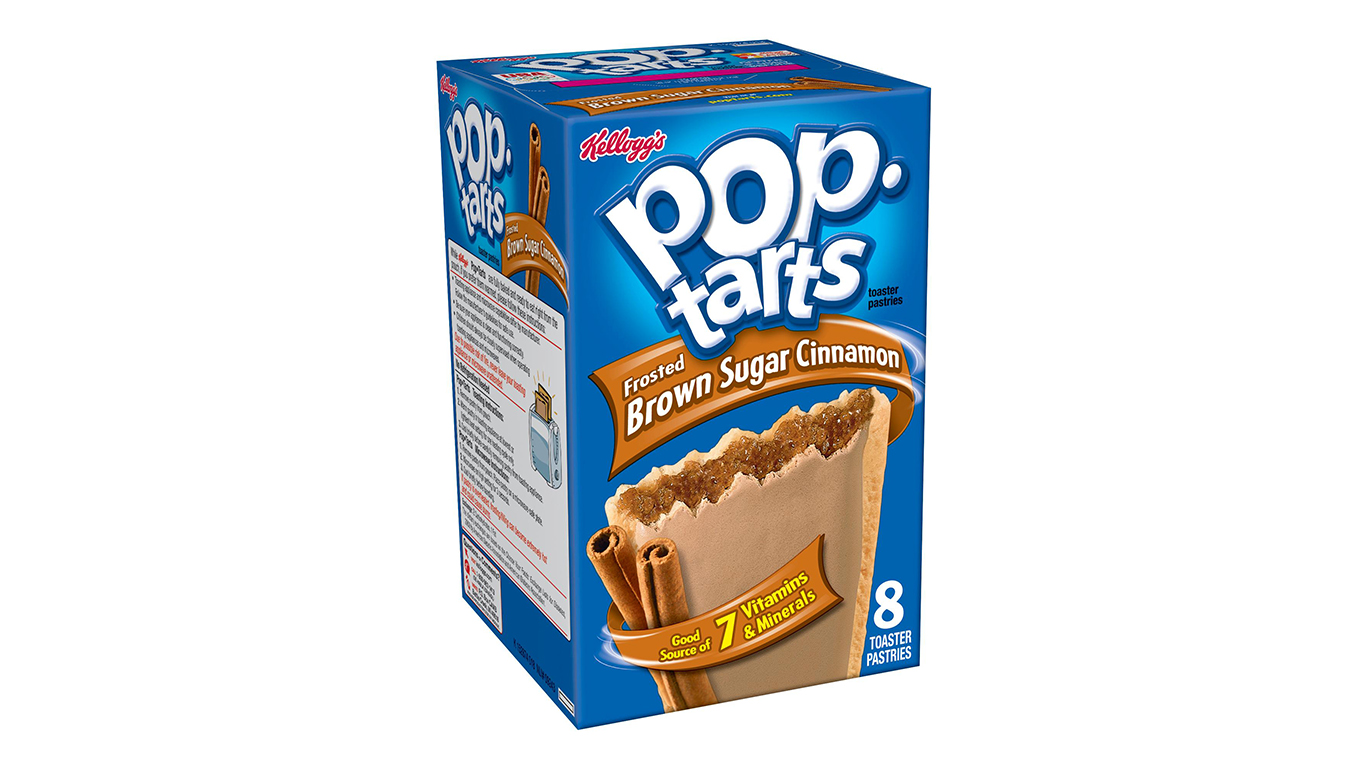
9. Kellogg’s Pop-Tarts – Brown Sugar Cinnamon
> Calories per serving: 210
> Sodium per serving: 170mg
> Sugar per serving: 15g
[in-text-ad-2]
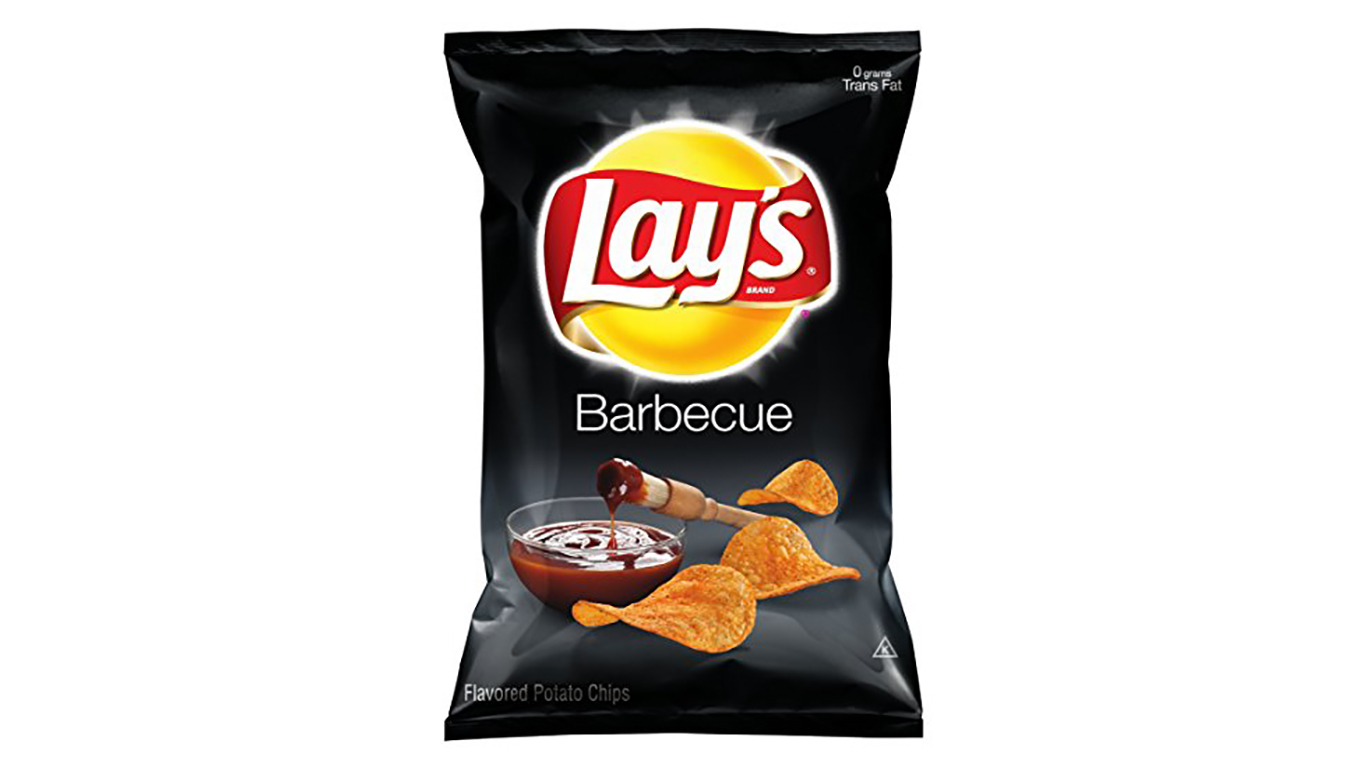
10. Lay’s Potato Chips – Barbecue
> Calories per serving: 150
> Sodium per serving: 150mg
> Sugar per serving: 2g
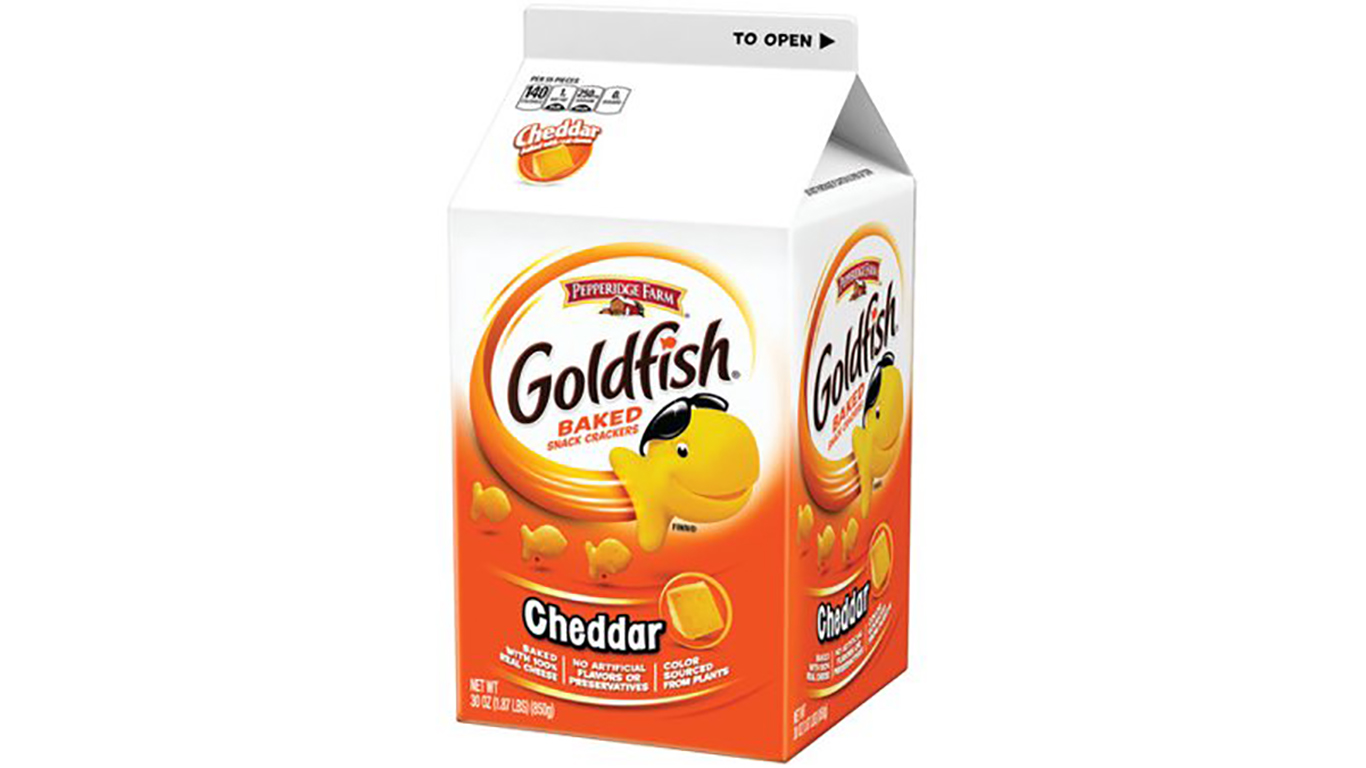
11. Pepperidge Farm’s Goldfish – Cheddar
> Calories per serving: 140
> Sodium per serving: 250mg
> Sugar per serving: 0g

12. Pop-Secret Double Butter Flavor
> Calories per serving: 120
> Sodium per serving: 270mg
> Sugar per serving: 0g
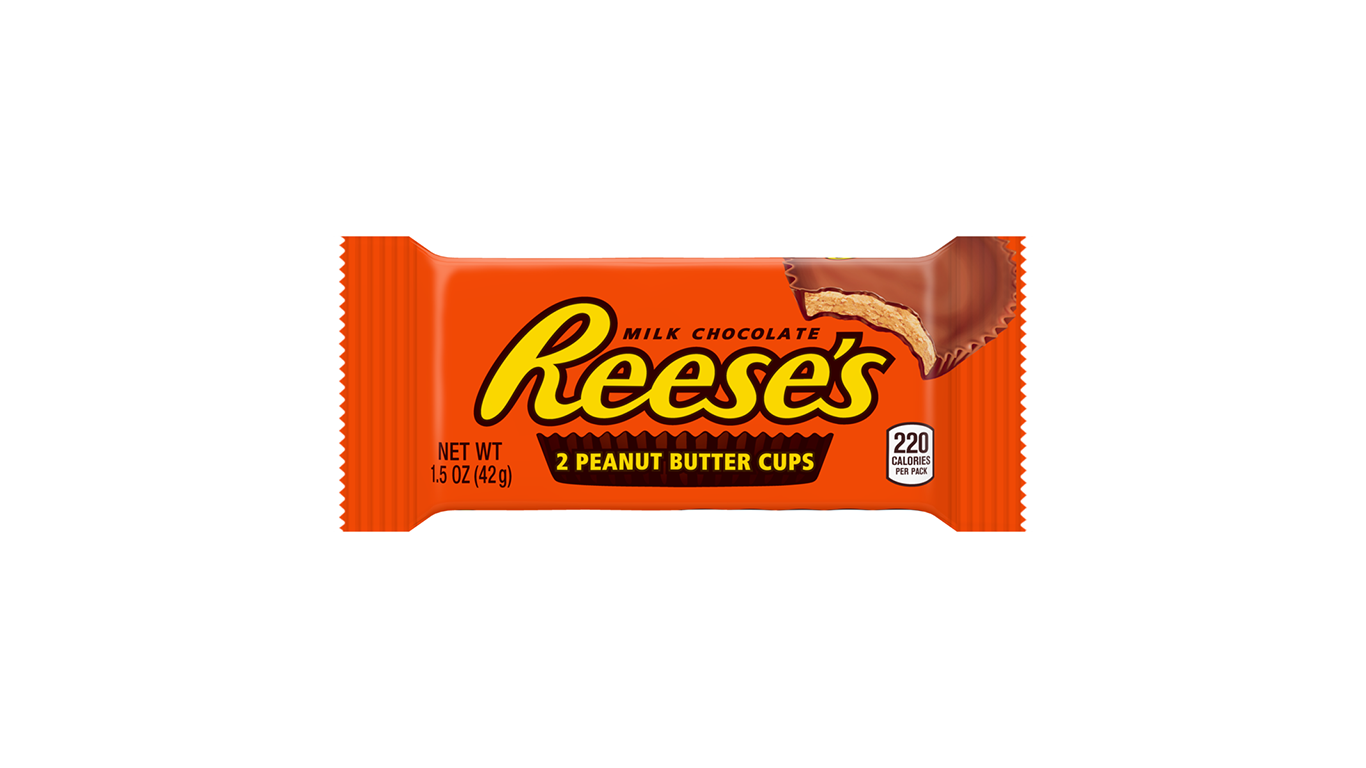
13. Reese’s Cups
> Calories per serving: 220
> Sodium per serving: 150mg
> Sugar per serving: 22g

14. Ruffles Cheddar and Sour Cream
> Calories per serving: 160
> Sodium per serving: 180mg
> Sugar per serving: 1g
[in-text-ad-2]

15. Skittles – Original
> Calories per serving: 160
> Sodium per serving: 0mg
> Sugar per serving: 28g

16. Three Musketeers
> Calories per serving: 240
> Sodium per serving: 90mg
> Sugar per serving: 36g
[in-text-ad]

17. Tropicana Twisters
> Calories per serving: 110
> Sodium per serving: 10mg
> Sugar per serving: 26g

18. Twix
> Calories per serving: 150
> Sodium per serving: 55mg
> Sugar per serving: 15g

19. Veggie Straws
> Calories per serving: 130
> Sodium per serving: 250mg
> Sugar per serving: 0.5g
[in-text-ad-2]

20. Zone Perfect Chocolate Chip Cookie Dough
> Calories per serving: 180
> Sodium per serving: 170mg
> Sugar per serving: 18g
Detailed Findings & Methodology
Ensuring that children are adequately nourished and encouraging them to avoid eating unhealthy foods in excess is vital to their long-term well-being. Despite their best efforts, however, parents cannot always ensure a healthy diet, be it for financial reasons, lack of time, children unwilling to cooperate, or a myriad of other obstacles.
Among these obstacles are school lunchrooms and big-name food companies with their alluring advertising campaigns — companies spend over $12 billion annually on youth-focused ads. The presence of chips, cookies, and sugary drinks, tempting youngsters both in the cafeteria and in hallway vending machines, make it all but impossible for them to escape to the temptation of junk food.
Childhood is arguably the most important time to begin developing healthy habits, because the kinds of food kids consume now can impact their health in adulthood. “Chronic diseases such as heart disease and Type II diabetes are often a result of unhealthy food intake,” Chong said. “If we can inspire youth to make healthier food choices, then we can potentially lower the incidence of chronic disease in adulthood.”
Parents, schools, food companies, and even the government can help children take the first step into healthier lifestyles and avoid complications later in life. Chong’s recommendation for parents is to pack various snacks such as fruits, vegetables, and snacks made from whole grains and low-fat dairy, and steer clear from sugary drinks and desserts.
To identify the healthiest school lunch snacks, we relied on two of the United States Department of Agriculture “All Foods Sold in Schools” Standards, which are required by the Healthy, Hunger-Free Kids Act of 2010. To be considered a healthy snack, the packaged food item had to have been less than or equivalent to 200 calories and contained less than 230 mg of sodium. We excluded fresh fruits and vegetables from this list, because they are inherently the healthiest options and would have comprised the entirety of that respective list.
We took a different approach for determining unhealthy snacks. In order to be on this list, snack items had to either be high in sodium or sugar and don’t provide any nutritional benefit. This means the product provided minimal protein, vitamins, and minerals, for example, in return for high amount of calories, sodium, saturated fat, and sugar. These snacks are referred to as empty calorie snacks because they yield little to no nutritional benefit.
Thank you for reading! Have some feedback for us?
Contact the 24/7 Wall St. editorial team.